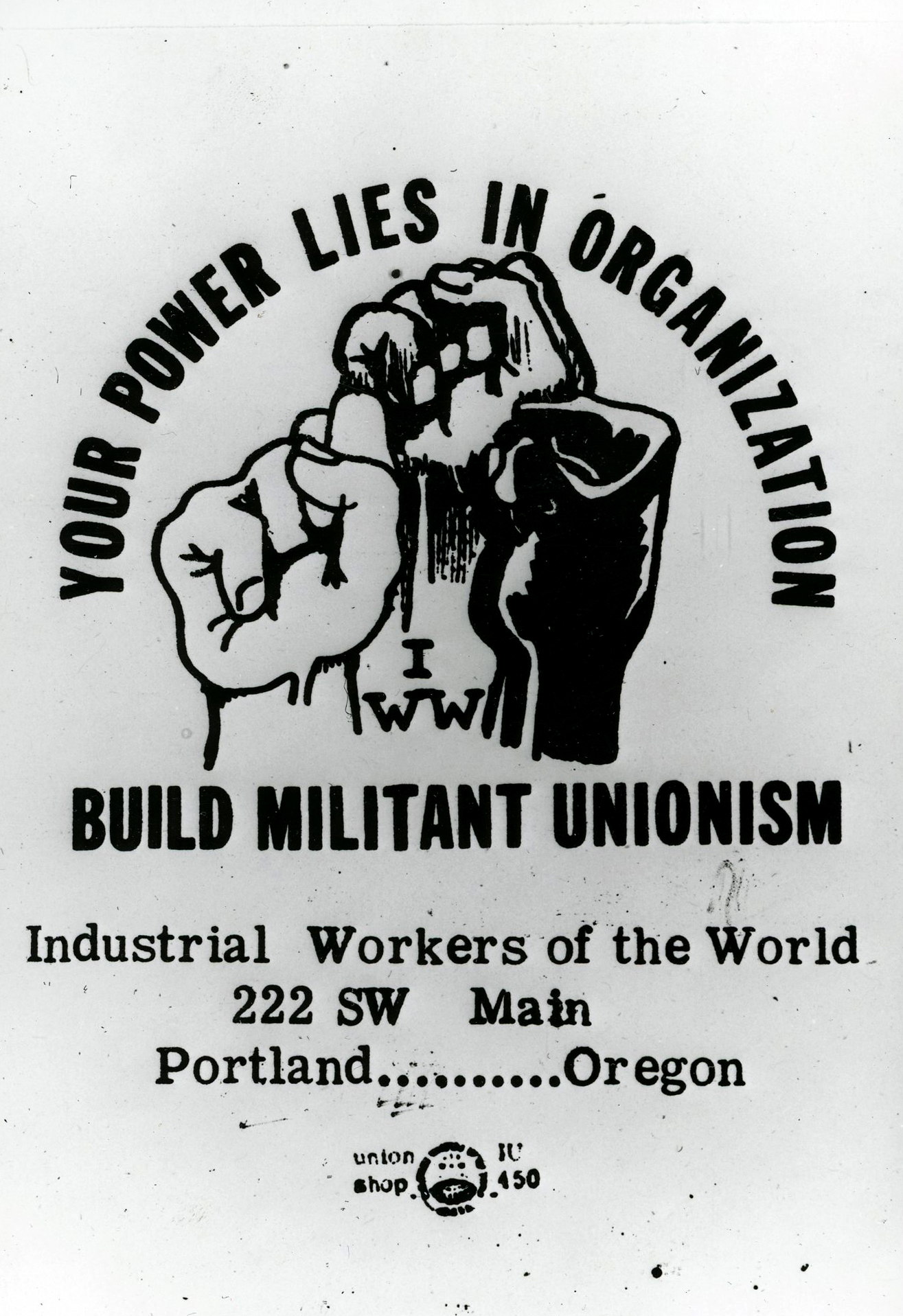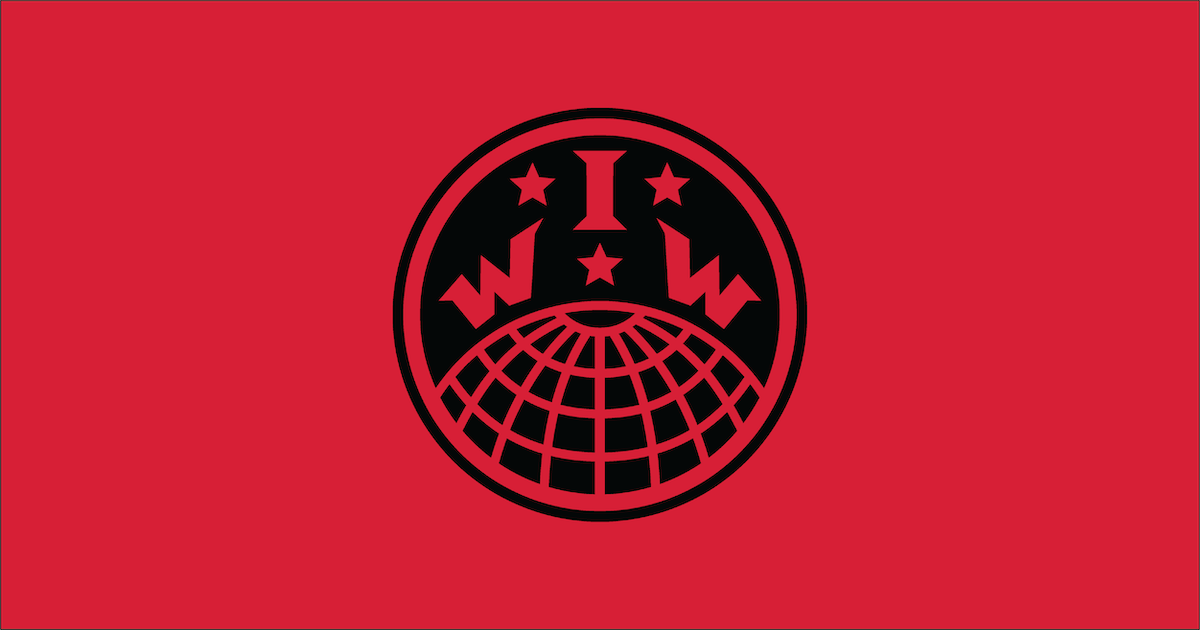Industrial Workers Of The World (IWW): A Comprehensive Guide To Its History, Impact, And Relevance
The Industrial Workers of the World (IWW) is a labor union with a rich history that has shaped labor movements worldwide. Founded in 1905, the IWW has been at the forefront of advocating for workers' rights and challenging economic inequality. Its vision of a world where workers control the means of production continues to inspire activists and labor movements today.
The IWW, often referred to as the "Wobblies," has played a pivotal role in shaping labor laws and advocating for fair wages and working conditions. Its radical approach and commitment to social justice have made it a significant force in the history of labor activism.
In this article, we will delve into the origins, principles, and achievements of the IWW, as well as its relevance in today's global economy. By exploring its history and impact, we aim to provide a comprehensive understanding of this influential organization.
Read also:Arcata Italian Restaurant Where Flavor Meets Tradition
Table of Contents
- History of Industrial Workers of the World (IWW)
- Core Principles of the IWW
- Organizational Structure
- Notable Achievements of the IWW
- Challenges Faced by the IWW
- Modern Relevance of the IWW
- Biography of Key Figures in the IWW
- Membership and Global Influence
- Criticisms of the IWW
- The Future of the IWW
History of Industrial Workers of the World (IWW)
The Industrial Workers of the World (IWW) was founded in 1905 in Chicago, Illinois, during a convention of radical unionists who sought to create a more inclusive and powerful labor movement. The organization emerged from the dissatisfaction with the conservative practices of the American Federation of Labor (AFL), which excluded many workers based on skill level, race, and gender.
The IWW's founding was marked by the presence of influential figures such as Eugene V. Debs, William "Big Bill" Haywood, and Mary "Mother" Jones. These leaders envisioned a union that would unite all workers, regardless of their background, under the banner of "One Big Union."
Early Years and Growth
In its early years, the IWW focused on organizing workers in industries that were often overlooked by other unions, such as mining, logging, and agriculture. The union's slogan, "An injury to one is an injury to all," became a rallying cry for workers across the United States.
By 1912, the IWW had gained significant momentum, organizing strikes in cities like Lawrence, Massachusetts, and Paterson, New Jersey. These strikes highlighted the union's commitment to using direct action and solidarity to achieve workers' rights.
Core Principles of the IWW
The IWW is guided by a set of core principles that emphasize solidarity, direct action, and the abolition of the wage system. These principles have been the foundation of the organization's approach to labor activism.
- Solidarity: The IWW believes in the unity of all workers, regardless of race, gender, or skill level.
- Direct Action: The union advocates for workers to take direct action, such as strikes and protests, to achieve their goals.
- Abolition of the Wage System: The IWW envisions a world where workers control the means of production, eliminating the need for wages.
Organizational Structure
The IWW operates as a decentralized organization, with local branches known as "branches" or "industries." This structure allows for flexibility and adaptability to the needs of workers in different regions and industries.
Read also:Chino Y Nacho Eternos Tour The Ultimate Experience For Reggaeton Lovers
Decision-Making Process
Decisions within the IWW are made through democratic processes, ensuring that all members have a voice in shaping the union's policies and actions. This participatory approach strengthens the organization's commitment to equality and fairness.
Notable Achievements of the IWW
Throughout its history, the IWW has achieved significant victories that have improved the lives of workers worldwide. Some of these achievements include:
- Organizing successful strikes in industries such as mining, logging, and agriculture.
- Advocating for the eight-hour workday and safer working conditions.
- Challenging discriminatory practices and promoting inclusivity in the labor movement.
Challenges Faced by the IWW
Despite its successes, the IWW has faced numerous challenges, including government repression, public backlash, and internal divisions. During the early 20th century, the union was targeted by the U.S. government through the Espionage Act and other anti-labor legislation.
Government Repression
The IWW's radical ideology and tactics made it a target for government crackdowns, particularly during times of war and economic instability. Many of its leaders were arrested, and its publications were censored.
Modern Relevance of the IWW
In today's global economy, the principles of the IWW remain relevant, as workers continue to face challenges such as wage stagnation, precarious employment, and corporate exploitation. The IWW's emphasis on solidarity and direct action offers a model for addressing these issues.
Global Influence
The IWW has inspired labor movements around the world, with branches in countries such as Canada, Australia, and the United Kingdom. Its influence can be seen in the rise of new labor organizations that prioritize worker empowerment and social justice.
Biography of Key Figures in the IWW
Several key figures have played pivotal roles in the history of the IWW. Below is a brief biography of some of these influential individuals:
| Name | Role | Contribution |
|---|---|---|
| Eugene V. Debs | Founder | Helped establish the IWW and promoted socialism as a solution to labor issues. |
| William "Big Bill" Haywood | Leader | Organized key strikes and advocated for industrial unionism. |
| Mary "Mother" Jones | Activist | Championed workers' rights and child labor reform. |
Membership and Global Influence
The IWW's membership has fluctuated over the years, but its influence extends far beyond its numbers. By promoting the idea of "One Big Union," the IWW has inspired countless workers to organize and fight for their rights.
Global Expansion
Today, the IWW has branches in countries across the globe, demonstrating its continued relevance in the fight for workers' rights. Its global presence underscores the universality of its principles and goals.
Criticisms of the IWW
Despite its contributions to labor activism, the IWW has faced criticism from various quarters. Some critics argue that its radical ideology and tactics alienate potential supporters, while others question its effectiveness in achieving long-term change.
Responding to Criticism
The IWW acknowledges these criticisms and continues to adapt its strategies to address the evolving needs of workers. By maintaining its commitment to solidarity and direct action, the union remains a powerful force in the labor movement.
The Future of the IWW
As the global economy continues to evolve, the IWW is poised to play a crucial role in shaping the future of labor activism. By adapting to new challenges and opportunities, the union can continue to inspire and empower workers worldwide.
Looking ahead, the IWW aims to expand its membership, strengthen its global presence, and promote its vision of a more just and equitable society.
Kesimpulan
The Industrial Workers of the World (IWW) has a rich history of advocating for workers' rights and challenging economic inequality. Through its commitment to solidarity, direct action, and the abolition of the wage system, the IWW has left an indelible mark on the labor movement.
As we look to the future, the principles of the IWW remain relevant in addressing the challenges faced by workers today. By continuing to organize and take action, the IWW can inspire a new generation of activists to fight for a better world.
We invite you to join the conversation by leaving a comment, sharing this article, or exploring other resources on our site. Together, we can build a more just and equitable society for all workers.
References:
- Industrial Workers of the World Official Website
- Encyclopedia Britannica - Industrial Workers of the World
- Library of Congress - Labor History


